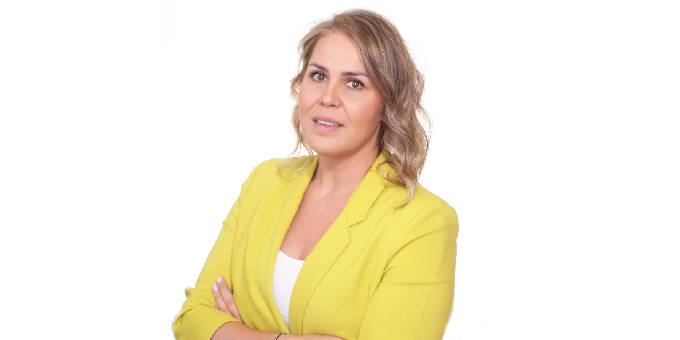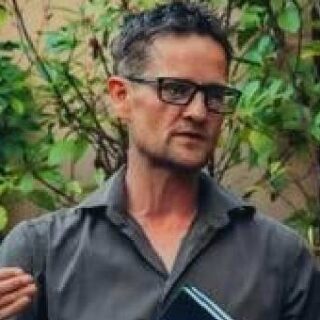Undoubtedly, stereotypes and prejudice still shape our behavior and the decisions we make. The narratives of the “others” and the culture of separatist activity are not in the interest of the youth, of the state, or of any other agents who for years now have invested in the European path for Bosnia and Herzegovina. It is a considerable hurdle to a healthy dialogue, to the process of reconciliation, to dealing with the past, and to the rule of law that remains the primary requirement for accession to the European Union. Sadly, historical revisionism in the Balkans does not concern itself with seeking the truth or justice, but rather with strengthening certain political ideologies that deny the sufferings of some people over others.
In this article we neither propose a framework for some ideal solution, nor a magic trick that would answer all the possible questions many of you probably have, some of which include: Are we going to fulfill our promises made to the EU and, consequently, receive the status of a candidate, or will we remain the leaders in missing obligations? Is Bosnia and Herzegovina on a European path at all? However, here we will remind ourselves that reconciliation and a professional approach to deconstructing wrong narratives remain important factors if we wish to witness positive patterns of behavior that are in the interest of society, the state, as well as the European Union.
While we spend years arguing about what happened in the past, the causes of the conflicts, who are the winners and the losers in the grand geopolitical moves in the Balkans – conversations about post-conflict life are qualitatively pushed aside. The generations before us, but also the present ones – particularly young people born during or after the wars in the 1990s, have all made peace with the fact that a past they had nothing to do with still greatly dictates their lives. Conversations about how young people see their lives in their post-conflict communities, about what reconciliation means to them (and with who and over what they are supposed to reconcile at all), dialogue with the “others”, as well as everything else we should be doing as a society on the way to European integration, has all been put on the back burner. This is because these questions have no simple answers, and because we are slow to admit that the legacy of the conflicts of the 1990s is still very much present, and that it has drawn for us divisions along ethnic, political, and religious lines. And that is no secret. The lines were drawn so that the ones who had drawn them would be certain that the people who question those lines would have to return to a past they were not a part of. It is an inherited credit from the past, with a fixed interest rate, and it seems we are paying it off for the generations of our parents, or maybe even of their parents. This push and pull damages the processes of reconciliation, of European integration, the further development of human rights protections, dialogue and other work done by youth workers, youth officials, activists, local and regional youth organizations, as well as international partners, particularly the European Union.
We often use the well-known phrase that young people are not only an important potential but also a necessary participant in all conversations about processes of decision making and European integration. Which is absolutely true. However – and this is crucial to stress – a mere token participation of youth is no longer an option. The only option is a meaningful involvement with suggestions and criticism, and a readiness to take certain measures. The adoption of Resolution 2250 on Youth, Peace, and Security marked a historical change in the way we should look at and engage young people. Events from the recent years have shown that young people are some of the strongest proponents of peace, and that they have considerable transformational power when it comes to narrative, the course of peace building, while the European Union has been speaking for a while about increasing youth participation in all processes and activities. Most often, or always, young people lack access to traditional power structures and are unable to contribute to change, but on the other hand their power manifests itself in trends, in quick thinking and in accepting things that were unfathomable to generations that came before. The current situation in the region, but also elsewhere, has shown that new changes must come to pass, both in creating narratives and political actions by certain parties and in conversations about bilateral and multilateral challenges faced by countries in the Western Balkans. If we are expecting young people to get involved in processes of peace building, it is of utmost importance to ask them what they think about events from the past, since they are already carrying them like ballast, but also what they think of their future. Additionally, if we see them as initiators of constructive processes in Bosnia and Herzegovina and the region, then they must trust those who are at the helm, directing important processes in their name. We must also see them at places where decisions are made. Youth satisfaction is unsatisfactory when we are talking about management systems and institutions.[1] In most regions, young people have given a score of 3 or less to the governments, parliaments, courts, police and the media, with available scores being between 1 and 5[2]. This shows that the youth’s trust in the government, and the certainty that they will do what is right, is somewhere between average and nil, which certainly acts contrary to encouraging young people to participate in processes lead by official authorities. And all this comes back to the fact that every time an argument could take place, we must go back into the past, where forensic truth holds little sway. Reaching court judgments in war crime trials is a step in the right direction, but it is clear that every process of dealing with the past and reconciliation is unfinished without their implementation. On average, opinions of young people are somewhat neutral when it comes to assessing the importance of the International Criminal Court for Former Yugoslavia to reconciliation and dealing with the past[3]. Many would call this incorrect, but it is a fact that it leaves room for discussion about younger and younger generations which, talking from experience, are more and more tired of the fact that ethnic lines underscore their economic and social opportunities. Talking from personal experience and from working with youth about the past and reconciliation, there is a very clear need for understanding European integration and reforms needed to be done so Bosnia and Herzegovina, and other countries in the region can hit their stride, but it is still not a priority. Young people are the agents of change, people who – through study, through meeting others, and through mobility within both Bosnia and Herzegovina and the region – will change the course towards the European Union; towards a better rule, a better system, and a better quality of life. They really need to be part of the conversation about what Bosnia and Herzegovina (and the region) will be like tomorrow, in five or 25 years. Their involvement and their learning from the past (not necessarily from dealing with it) remains a crucial requirement for social cohesion and the sustainability of peace in the region. It is certain that, as part of this process, we need to talk about things mentioned earlier in this article – prejudice about other nations and demystifying political ideologies. As much as we, as a young generation, are fond of traveling, learning, and meeting other people, so we can also think about cooperation and progressive changes in our environment. “Shared Futures” analyzed the sorts of contacts young people have had with persons of other ethnicities and their perceptions about the various peoples of the Western Balkans.
The analysis indicated two important categories of youth. One, in which many young people who have stated that they have close friends from other ethnic groups, apart from the one they belong to, trust people from other nations in the region more, and agree that the nations in the region are more alike than different. The other, in which young people have claimed to have several acquaintances from other ethnic groups – but not friends – who have expressed a lower level of agreement with others and a lower level of trust in other nations from the region, and thus do not believe that the people from the region have much in common. The exception was Bosnia and Herzegovina where young people who had more acquaintances saw similarities between different groups. That can be attributed to the specific context of Bosnia and Herzegovina and the nations that have always inhabited this area, but even today, in spite of all the rhetoric of one-nation politics, these opinions of young people in Bosnia and Herzegovina indicate an optimism that they are trying to find a common path so that we as a society can move forward. The current social and political situation contributes to major discussions about individual and collective identities, as well as individual and collective responsibilities for the crimes committed in the past war. In all this, very often young people are used as fodder and all investments in exchange programs, mobility, youth empowerment and learning about constructive approaches to dealing with the past are criticized by those who do not believe that peace in the Balkans is sustainable.
Finally, not a single research offers an absolute solution when there are so many different factors at play, but they do offer a kind of reality check filter.
 Reality check: Issues about the past in the Balkans, about the war, and peace-building efforts is not a nine to five job. Einstein was right when he said that it is easier to break an atom than a prejudice. The lessons learned are that we must continue to work on destroying prejudices, because they do not lead to reconciliation, and we must work on ourselves and our primary communities where everything starts from and where we learn the most about others – our families. Ultimately, it becomes pointless to say that young people must be part of these processes because they are burdened by the past and by the prejudices that they did not create, but merely inherited.
Reality check: Issues about the past in the Balkans, about the war, and peace-building efforts is not a nine to five job. Einstein was right when he said that it is easier to break an atom than a prejudice. The lessons learned are that we must continue to work on destroying prejudices, because they do not lead to reconciliation, and we must work on ourselves and our primary communities where everything starts from and where we learn the most about others – our families. Ultimately, it becomes pointless to say that young people must be part of these processes because they are burdened by the past and by the prejudices that they did not create, but merely inherited.
Reconciliation in the Western Balkans must come through justice, which is why governments must make additional efforts and discuss the future in partnership with young people. Because to talk about reconciliation, forgiveness, remembrance and human rights in the Balkans – is not talking about the past, but about the present. By facing the past, it is possible to come to the truth, but not only through prosecution, trials, and decisions. To face the past means to face yourself and your beliefs. Which necessarily means facing the present.
Without any doubt: young people want to travel, learn, meet others, gain new skills, become employed, and live from the fruits of their labor. They want to plan their next steps, or at least have the opportunity to plan, belong to a structure that will do everything to protect their interests and offer them a place in the discussion regarding questions of social importance – which is all a European reality and the future for those who join the EU.
Berina Bukva Alibašić holds a BA in Law and is currently working on her master’s thesis in International Criminal Law, University of Sarajevo. Her previous work focused on youth empowerment and youth education as well as advocating for the prevention and ending violence against women and girls. She is a certificated youth trainer for Human Rights, Democracy and Gender Equality. From 2009, she has been active in the NGO sector. She worked for several years at the Institute for Youth Development KULT as a Project Officer involved in different initiatives for youth empowerment, youth work, and dialogue with government institutions, and gender issues. Bukva Alibašić worked for the British Council of Bosnia and Herzegovina on programs for arts, education, and society. She worked as a Coordinator at the TACSO VESTA Resource Centre, managing the project activities in Western Balkans and Turkey. For the past 4 years she is the Head of RYCO Local Branch Office in Bosnia and Herzegovina contributing to the regional discussions and activities with regards to intercultural dialogue, reconciliation, and regional cooperation, on a programmatic level. Her fields of interest are social media and communication. She is a storyteller and enjoys writing about ordinary life stories. She believes in the power of unity, the European Union, knowledge, and hard work.
[1] The study “Shared Futures: Youth Perceptions on Peace in the Western Balkans” was conducted by UNDP together with UNFPA and the Regional Youth Cooperation Office (RYCO) through a participatory research process that includes young people, some 4500 young men and women in Albania, Bosnia and Herzegovina, Kosovo*, 1 1Montenegro, North Macedonia and Serbia.
[2] 1 is complete dissatisfaction and 5 complete satisfaction
[3]Study: “Shared Futures: Youth Perceptions on Peace in the Western Balkans”




